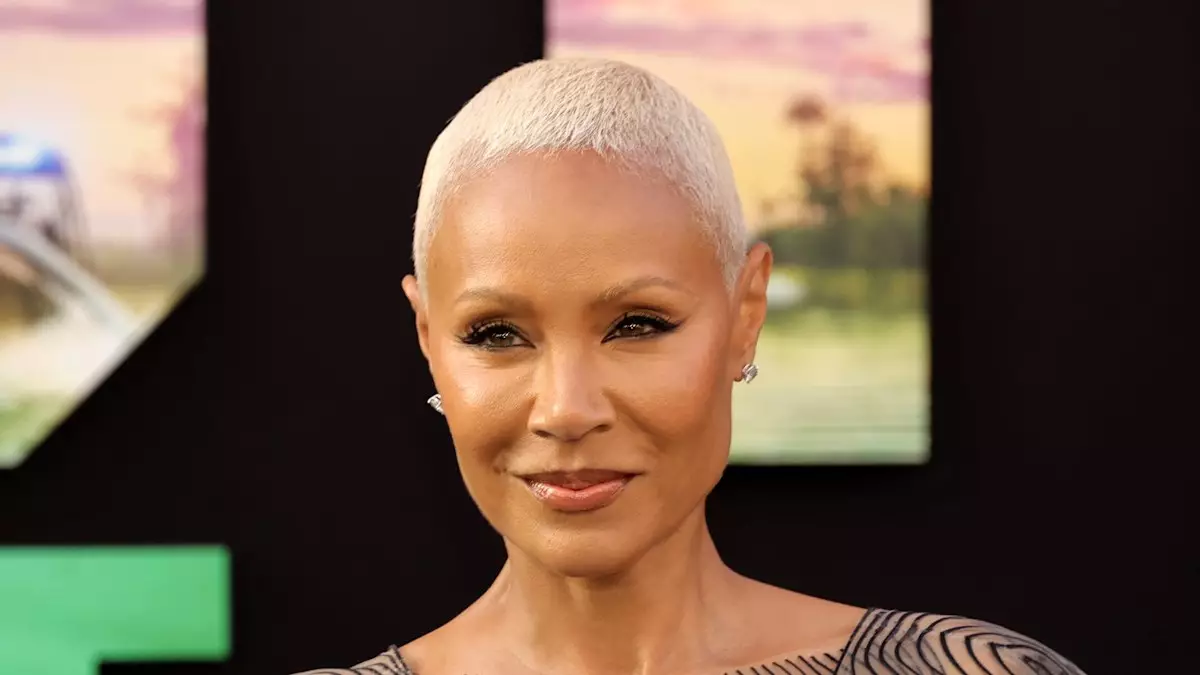Jada Pinkett Smith, an iconic figure in Hollywood, continues to captivate her audience not just with her formidable talent but also with her evolving sense of self. Recently, the 53-year-old actress made headlines by unveiling a strikingly fresh look—a subtly bleached buzz cut that naturally radiates confidence. This transformation was showcased through an Instagram selfie captioned simply as “Ice,” where she displayed her platinum blonde hair and matching eyebrows. Fans exploded with enthusiasm, showering her with praise through a torrent of heart and fire emojis, affirming her status as a beauty icon. In a world where appearances often dictate how a person is perceived, Jada’s embrace of such pronounced change challenges conventional standards and reinforces her enduring relevance.
Behind the sparkle of Jada’s recent hair transformation lies a significant narrative of struggle and perseverance. She first brought her alopecia diagnosis to public attention during an episode of her talk show, “Red Table Talk,” back in 2018. In a heartfelt revelation, she discussed the terror she experienced when she started to lose hair—an experience that many women, especially Black women, can relate to, given the cultural and personal importance placed on hair. Her anxiety about losing her hair serves as a powerful reminder of how deeply intertwined self-identity and appearance can be. The candid discussion not only brought awareness to the condition but also positioned her as a figure of resilience and authenticity.
Jada’s decision to shave her head in 2021 marked a critical point in her journey. Influenced by her daughter Willow—who had previously sported the buzz cut—Jada saw this as an opportunity for liberation. “It was time to let go,” she stated, reflecting on this transformation as not just a cosmetic change, but a symbolic shedding of societal expectations. This brave act of defiance against conventional beauty norms illustrates her profound understanding of strength and vulnerability. In her post, she remarked that her 50s would be “Divinely lit with this shed,” indicating her newfound liberation and self-acceptance, qualities often glossed over in the pursuit of youthfulness.
Jada’s journey through alopecia speaks volumes about the wider cultural implications surrounding hair, particularly within African American communities. Hair is often a source of pride and identity, and for Jada, her experience illuminated painful yet essential truths about self-image. In a world increasingly quick to judge based on appearances, her story enhances the conversation about beauty and authenticity. When she described alopecia as a “great teacher,” it underscores the significance of facing insecurities head-on and the evolution of beauty perception beyond mere aesthetics.
In interviews, including one with *The Guardian*, Jada expressed her realizations about emotional detachment and inner beauty learned through her struggles. Her words resonate with those who grapple with similar issues of self-acceptance in a society that often emphasizes external validation. “I had to really dig deep and see the beauty of myself beyond my aesthetics,” she articulated, suggesting that true beauty transcends surface-level attributes. This philosophy not only inspires her fans but also encourages women everywhere to appreciate their intrinsic value regardless of societal standards.
Jada Pinkett Smith’s approach to change—whether it’s through her hair or her conversations about difficult subjects—establishes her as a beacon of hope and empowerment for many. Her willingness to engage in honest discussions about her life, including her experiences with alopecia, has created a space for vulnerability where others can feel safe to share their stories. By redefining what it means to be beautiful and resilient, she continues to pave the way for authenticity in an often superficial world.
As she embraces change, Jada reminds us that the path to self-acceptance is not always easy, but it is undoubtedly a journey worth taking. Her story serves as an inspiration for many who struggle with their identities, shining a light on the beauty of transformation and the importance of love—both for oneself and from others.

